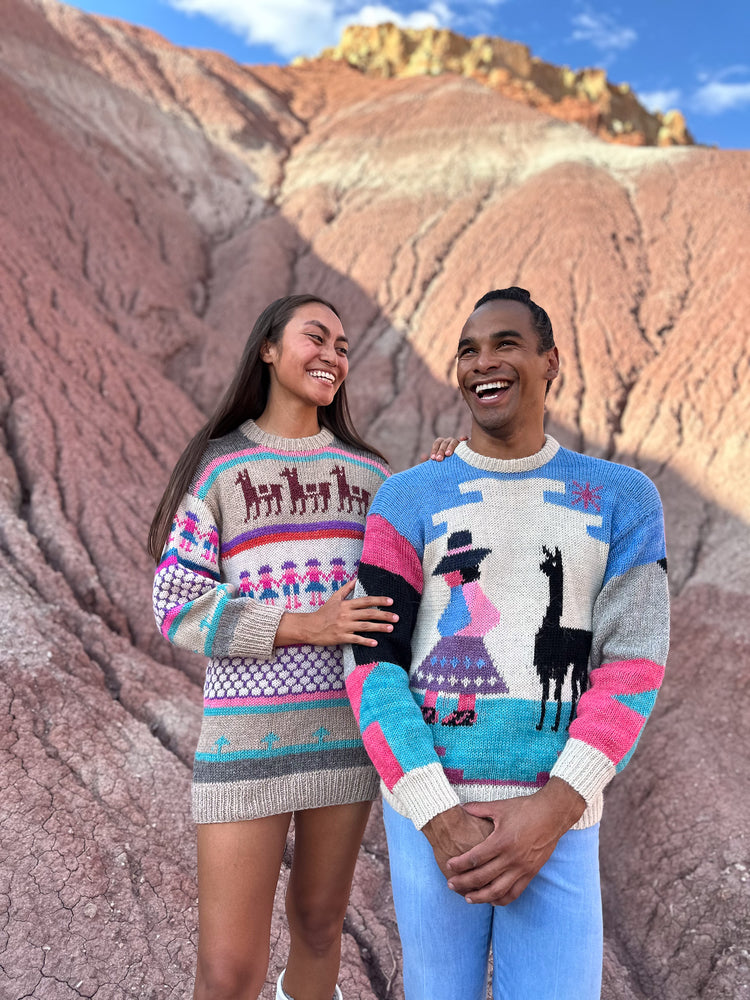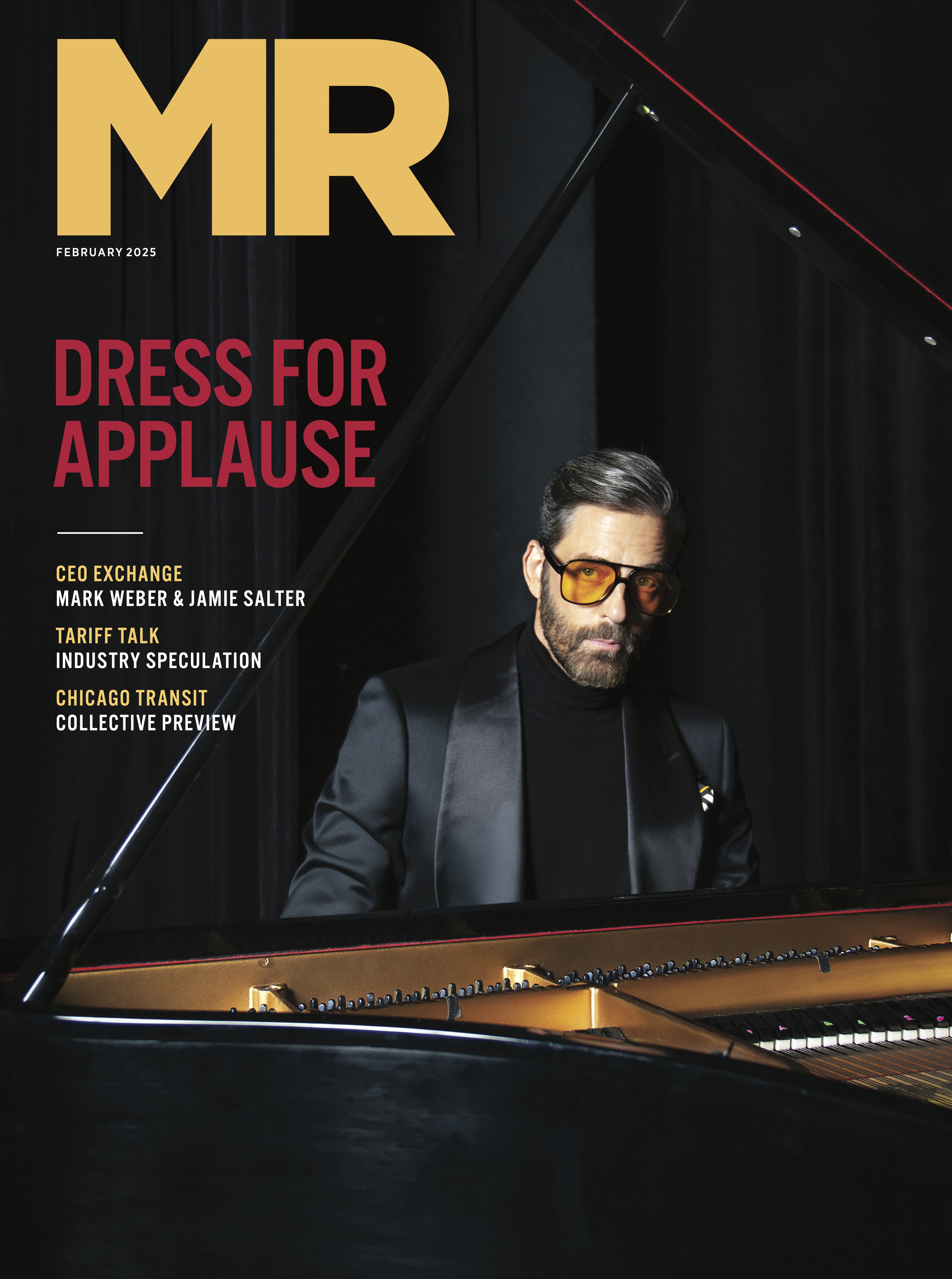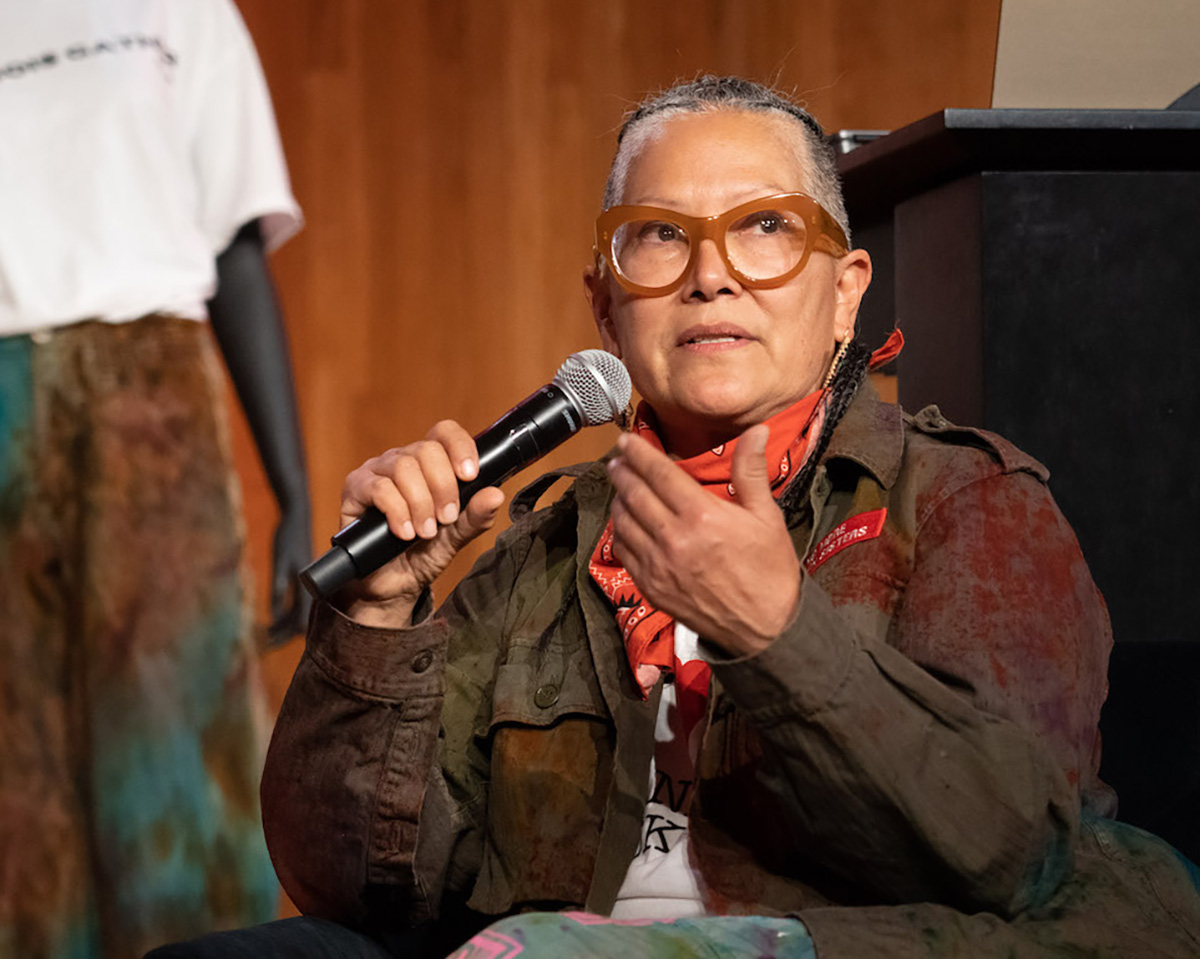INDIGENOUS CREATOR AMY DENET DEAL ON CAREER, COMMUNITY, AND CULTURAL HERITAGE

On November 19, the Fashion Institute of Technology held A Celebration of National Native American Heritage Month, a full day of panel discussions and performances featuring Indigenous designers and creatives. The special event was timed to Red Shawl Day, a day of remembrance honoring murdered and missing Indigenous people and Alaska Natives, especially women and children.
FIT’s Social Justice Center cohosted the conference with 4KINSHIP, a retail brand and shop in New Mexico, founded by FIT alumna Amy Denet Deal (above, photo courtesy of F.I.T. ), that sells sustainable clothing and accessories designed by Denet Deal and other Indigenous artists. Before founding her business in 2022, Denet Deal designed for major corporate brands like Reebok and Puma. She grew up in Indiana and was raised by an adoptive family, but she always wanted to connect with her Navajo heritage. In 2019, she moved to New Mexico to start that journey.
Here, she speaks with FIT’s Newsroom about her career, returning home, and dispelling myths about Native American people.
FIT Newsroom: You studied at Purdue University before attending FIT. Please share what inspired you to change careers and delve into fashion design?
Amy Denet Deal: From a young age, I had been designing my own clothes, but growing up in Indiana, I never thought it could become a career. However, during my initial years at Purdue, I discovered my true passion lies in fashion. When I applied to FIT and got accepted, it felt like I had won the lottery.
Tell us about your experience living in NYC and studying at FIT. How did you adjust to New York City energy vs. growing up in Indiana?
Experiencing culture shock upon my arrival in the city, having never encountered public transport before, was a profound adjustment. Yet, living in NYC during the ’80s made me feel limitless, as if I was finally free to express myself authentically.
During your fashion design career, you worked for companies like Puma. Could you tell us about your experiences?
Working for major shoe brands in the ’80s and ’90s was an extraordinary experience, marked by a rapidly evolving industry fueled by technological advancements. I never anticipated that my organic chemistry classes would become so valuable, as textile science soared with the advent of performance fibers. This journey led to an early opportunity to work overseas, where I managed designs for a global brand. My experiences in Europe propelled my growth as a creative and honed my skills as an innovator.
Returning to New Mexico in 2019, just before the pandemic, how did you organize yourself and settle into a new chapter?
I had to begin by letting go of old habits and mindsets to initiate the process of decolonization. This journey involved reassessing my approach to doing business and embracing a new lifestyle that aligned with Indigenous values and aspirations. By adopting new strategies and perspectives, I was able to transform my life and work in meaningful ways.
Since returning to New Mexico, you have raised $1 million for your tribe. How did you achieve this impressive milestone on behalf of your community?
With the skills I learned in the fashion industry, I transitioned from creating wealth for brands to generating resources for community solutions. Through innovative social media campaigns and creative collaborations with celebrities like Jewel for benefit concerts, I successfully crowdfunded significant support. The funds raised were used to acquire PPE and essential supplies. My experience in overseas purchasing and logistics was crucial in importing these goods into the U.S. and facilitating their distribution on Navajo Nation.

Tell us about 4KINSHIP and how you conceptualized the name and mission?
In Diné culture, the word “K’é” signifies the kinship system within our community. It embodies the deep connection with others and an appreciation for one’s roots. As a Diné woman, I stand amid our four sacred mountains, grounded in my heritage and committed to forging a transformative future for the next generation through our brand platform. The evolution of our brand is driven by a community united by heart and a shared purpose on this planet.
When people come to your store, what do you want them to come away with when they leave?
The knowledge that we are not just “still here,” but that we belong here. Indigenous people are creative and innovative and have a unique perspective to contribute to the world. Our store is a space that celebrates this, showcasing our traditional designs and contemporary adaptations that tell the story of resilience and perseverance of Indigenous people. We want people to leave feeling inspired, educated, and proud to support Indigenous artisans and their communities.
We also hope for people to leave with a deeper understanding and appreciation for the importance of preserving cultural heritage and supporting ethical fashion practices. By shopping at 4KINSHIP, customers are not only getting beautifully crafted products but also contributing to social impact initiatives that uplift Indigenous communities. We want them to feel like they are part of something bigger than just a retail transaction.
You talked about collaborating with the next generation because they are our future. What have you learned while working with emerging designers?
Working with these young talents and highlighting their stories has been truly inspiring. My greatest realization is that we are not striving for an Indigenous future; we are already living it. As an Indigenous brand, it is my duty to use my platform to amplify and uplift these remarkable talents in a way that truly benefits them. To further this mission, we launched the Indigenous Futures 4EVER Fund. [Learn how to support Indigenous Futures 4EVER Fund by texting 4EVER to 707070.]
What do you want people to know about your journey and all that you have accomplished?
It’s never too late to return home and decide to start giving back to your community. My journey began with a few hours of volunteering one day a week, which eventually expanded to become the main focus of my work. It has become one of the most joyful aspects of my life.
Share one misconception about Indigenous people you would like to dispel.
Many non-natives think of us as pan-indigenous, but we are over 574 federally recognized tribes, each unique and diverse in their cultures.
What advice would you give to someone who is looking to change paths and pursue something different?
Embrace what brings you joy! Minimize distractions and let go of toxic people and things that no longer serve your life’s purpose.


